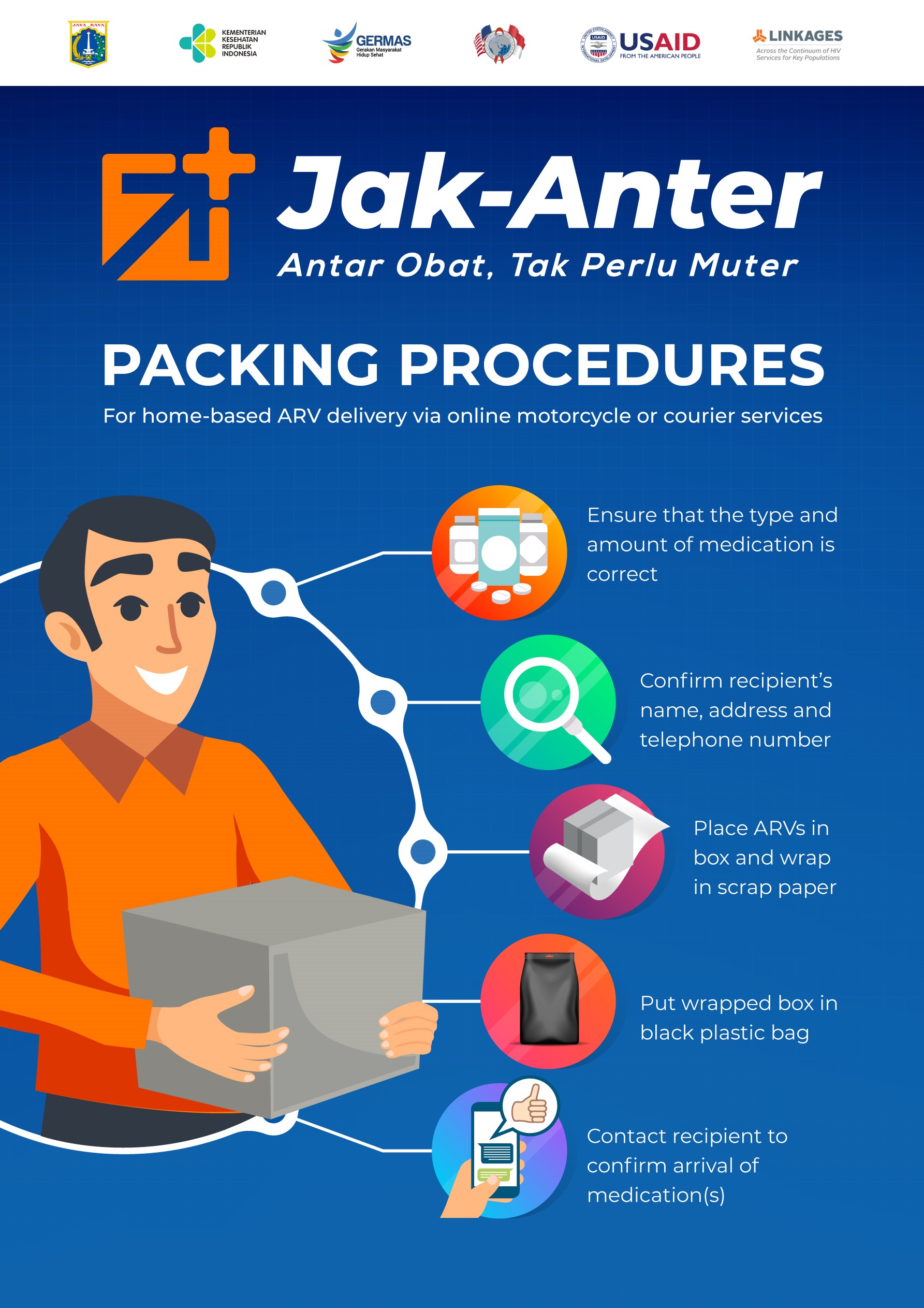Caroline Francis, Project Director, LINKAGES Indonesia
Photos: LINKAGES Indonesia
With over 100,000 confirmed cases as of July, Indonesia has been hit hard by the COVID-19 pandemic. However, in Jakarta, the vast majority of people living with HIV (PLHIV) have continued their HIV treatment regimens during the pandemic despite varying lockdown orders, quarantines, and physical distancing restrictions. With ongoing support from USAID, multi-month dispensing (MMD) and home delivery of antiretroviral medications (ARVs) have become promising options to ensure safe and sustained access to lifesaving HIV treatment among PLHIV where current restrictions impose substantial barriers to treatment retention. The Provincial Health Office (PHO) in Jakarta has incorporated two-month provision of ARVs and home-delivery services into official policy and is also working with the USAID- and PEPFAR-supported LINKAGES project to scale those practices through facility-based dispensing and Jak-Anter, a new home-based ARV delivery system.
Jak-Anter: An innovative option for ARV delivery
In March, new physical distancing measures drastically reduced the ability of community-based HIV service personnel to deliver ARVs to PLHIV. In response, the PHO introduced two-month dispensing and home-based ARV delivery into their emergency regulations, setting in motion a new set of parameters for differentiated service delivery options. LINKAGES Indonesia was then mobilized to create Jak-Anter. Jak-Anter follows a five-step process to ensure safe and secure delivery of ARVs from facility to client. First, a client who is unable to come into a facility for services due to COVID-19 restrictions has their address and mobile phone number confirmed by facility staff. Then, the staff member contacts the client to confirm that their location is suitable for receiving ARVs. The ARVs are then sent to the client through the Jak-Anter delivery system via a ride-based app or transport courier service such as Tiki, JNE, Grab, or Gojek. The client confirms receipt of the delivery with a phone message, photo, or WhatsApp correspondence. Finally, the ARV home-delivery information is collected and processed by LINKAGES project staff.
Delivering for people and program performance
At the end of June, 6,539 PLHIV in Jakarta had received two-month supplies of ARV medications and 4,498 PLHIV were able to maintain access to their HIV treatment through home delivery – totaling 63 percent of all PLHIV at 60 Jakarta HIV treatment facilities. The remaining 37 percent of PLHIV are continuing to access ARVs in person at the facilities.
The approaches are working for both providers and clients, and supporting the country’s responses to both HIV and COVID-19. One health care provider in South Jakarta explained, “When we provide two-months of ARVs – or send medications through Jak-Anter – our workload decreases and we can focus on other key tasks, including COVID-19 contact tracing.”
A client described the benefits as follows: “Having my medications delivered to my home has helped me stay on HIV treatment and lowered my risk of COVID-19. The medicine is wrapped to protect my identity and the use of Go-Jek [a ride-based app] means that my neighbors do not know the contents of the delivery.”
Both multi-month dispensing and Jak-Anter are currently being scaled up across all HIV treatment facilities in Jakarta and the surrounding metropolitan areas, potentially serving up to 30,000 PLHIV in the coming months.

